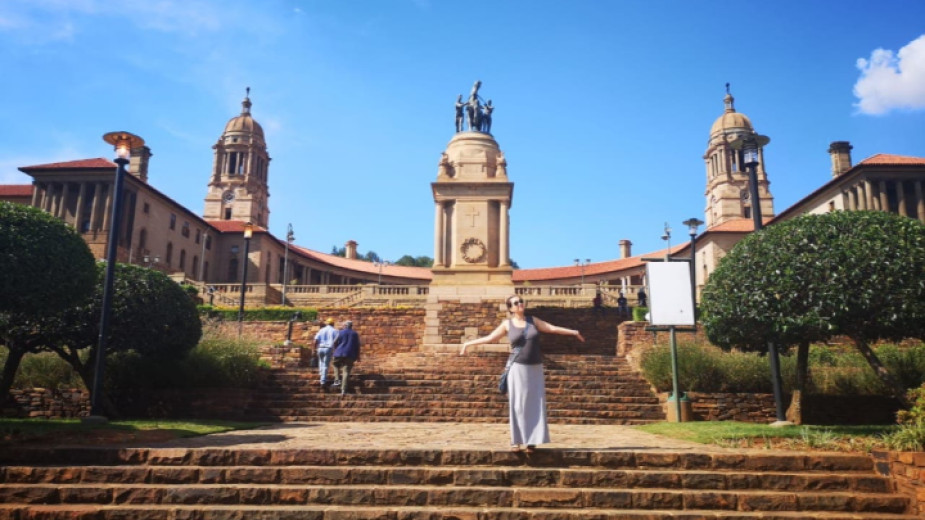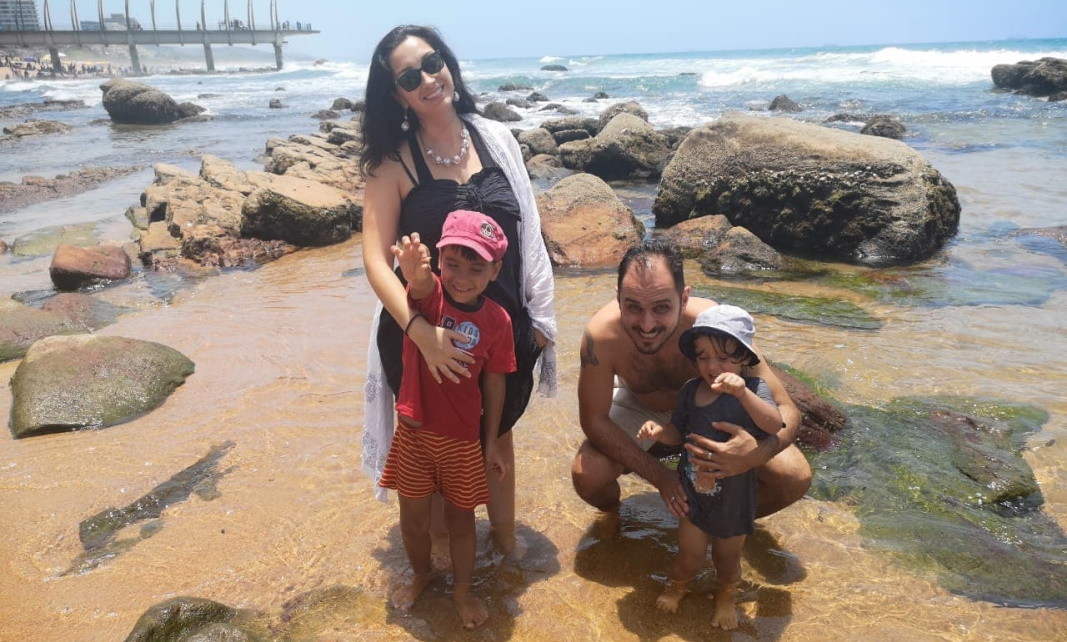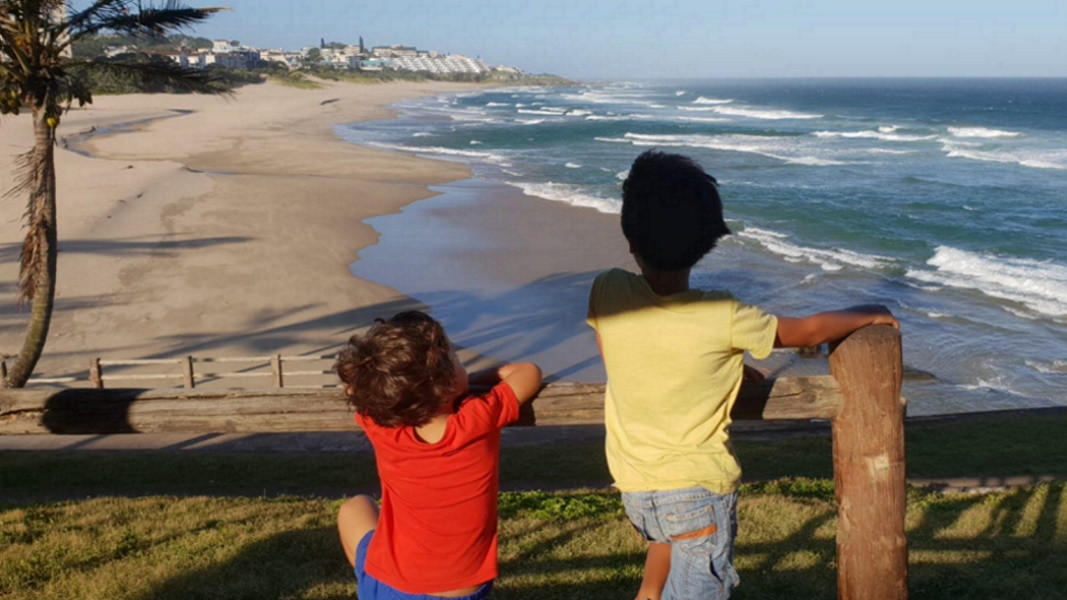 4
4
On the shores of the Indian Ocean, in South Africa, there is a town with a population of three million, a city as vibrant as if it has brought together the entire world in one place. But that is what the whole of the Republic of South Africa is like, and that is why it is called “The rainbow nation”.
It is there, in Durban, that Angelina Popisakova-Samsonova lives with her family. She says that in the space of two and a half years she has started to feel Africa is her home – because of the warm human relationships. “South Africa is now in the process of change, it is still seeking to find its place as an economic power in the world, and the pandemic has only made this more difficult,” Angelina Popisakova says. She is there, together with her husband and their two children, out of an adventurous family spirit, but also because of the beautiful nature of this generous faraway continent.

“When I came here I had a clash with reality,” she says in an interview for Radio Bulgaria. “I have graduated film directing and I practiced it for 10 whole years in show and entertainment at different TV stations. I thought I was well up to standard professionally, but as it turned out the experience I had was useless in the new world I found myself in. Here racism and prejudice are very strong and when it comes to hiring, being white is not an advantage. So now I teach German at a kindergarten. On the whole life is not as social as it is in Eastern Europe. People are friendly, they smile at you but there is no tradition of being together. There are a lot of Bulgarians in Durban and one of my big regrets is that there is no Bulgarian school here. Besides, the Bulgarian community is very fragmented. It is a well-known fact that there is a high crime rate here, so people tend to restrict their contacts. We, Bulgarians who live here, live between the home, work and the children’s school – a very safe triangle where it is not very likely to meet up with fellow countrymen. I can’t go out for coffee with friends in the neighbourhood, and that is very difficult to get used to here.”

Angelina says that when you live in a foreign country you surround yourself with all kinds of things that remind you of Bulgaria. Even in Africa she went back to Bulgarian embroidery and she says it gives her much pleasure. “Just as we want to be open to the world and to things different, we want to nurture a love of the Bulgarian language and all things Bulgarian in our children,” she says.

“It is our plan to absorb all things colourful, the people and the nature of Africa, and then with everything we have learnt, to go back to Bulgaria. I would very much like to leave a fraction of Bulgaria in Africa - by setting up a branch of the Bulgarian Sunday school here, where we live.”
South Africa is home to many storks and swallows, many of which migrate here from Bulgaria in autumn. The bill-clattering of the storks is a fond memory that instantly reminds Bulgarians of their home country.
Photos: courtesy of Angelina SamsonovaThe film "Gundi: Legend of Love" caused a sensation across the Ocean. Screenings of the film story about the life of legendary football player Georgi Asparuhov – Gundi were held in Los Angeles and Las Vegas as the halls were full...
On this day 35 years ago, the authoritarian regime of communist dictator Todor Zhivkov collapsed. To mark the anniversary, the BGNES news agency carried out a survey of monuments to totalitarianism. The agency checked whether the monuments of the..
Residents and guests of the village of Kolena, Stara Zagora Municipality, gather for the Young Wine Festival. The event was celebrated for the first time in 2017, and a few years later the local teacher and winemaker Martin Slavov gave the..
According to the Annual Report on the Health Status of Bulgarian Citizens for 2023, t he main cause of death in Bulgaria is diseases of the..
At the Bulgarian Embassy in London, Prof. Bettany Hughes presented excerpts from the new BBC series - Wonders of Bulgaria. Prof. Bettany..
Over 3.5 million Ukrainians have arrived in or passed through Bulgaria since the beginning of the war. Nearly 200,000 people have found temporary..

+359 2 9336 661
